
BLACKSTONE TDA - tire-derived aggregate (TDA) is a proven substitute for traditional aggregates like sand, gravel and stone in engineering projects like construction backfill, road drainage and stormwater management. It is light weight, stable, and has a high flow rate. TDA is an ideal alternative to stone aggregate in the design and build of septic fields.
Blackstone TDA has been designated “inert” by the State of Michigan. It is an approved construction material under international engineering standards. It can be applied or installed along with other aggregates, and sometimes geotextile fabrics, depending on the design specifications.
Environmental studies show that TDA has little to no impact on ground water or the environment. Studies by Humbolt University in 2016 showed TDA removes metals like iron, zinc, manganese and lead from stormwater, and organic materials like oils, grease and phosphates; solvents like ketones and acetones, and benzene, a component of gasoline.
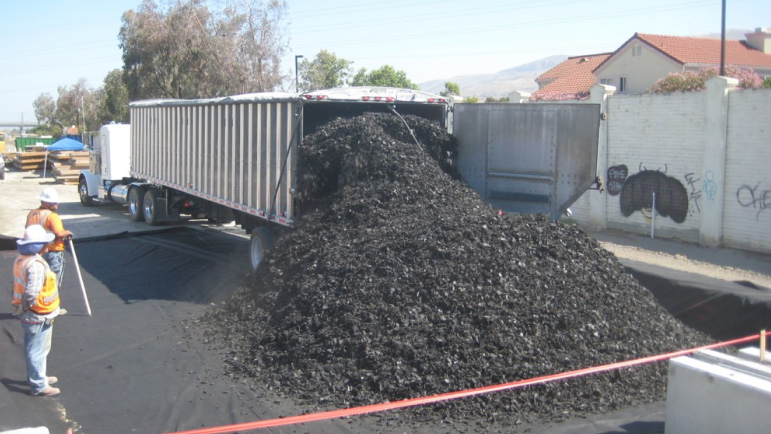
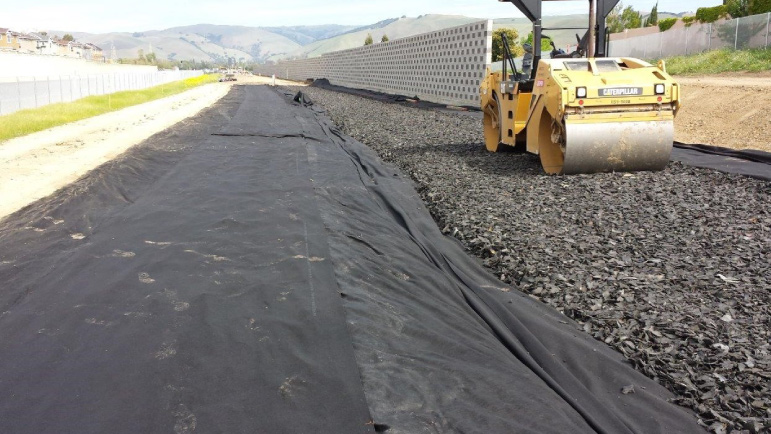
Properly applied and compacted, TDA meets ASTM standard D6270-08, “Standard Practice for Use of Scrap Tires in Civil Engineering Applications. In Michigan, the use of TDA is authorized under environmental statute that addresses “beneficial use of secondary materials” such as scrap tires.
Tire-derived aggregate is shown to:
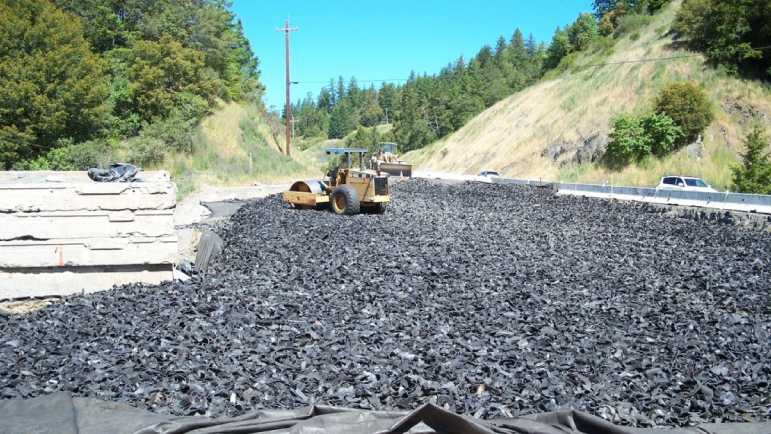
Blackstone TDA is an excellent light-weight replacement for the typical soils and aggregate used in road base construction and repair, and embankment stabilization. Typical soils can become saturated and unstable, leading to degradation of the road surface. TDA’s light weight exerts less pressure on surrounding soils, making them more stable. It is permeable and insulates the road from frost, which leads to fewer cracks and potholes and extends the life of the entire project.
Using TDA reduces the need for soil excavation, which saves time and money. It can be applied in layers up to 10 feet thick and compacted using the same techniques as typical soils. And, because it doesn’t hold moisture, TDA can be applied wet, which helps projects get done faster. See how it’s done in this video, Tire-derived aggregate long term road repair.
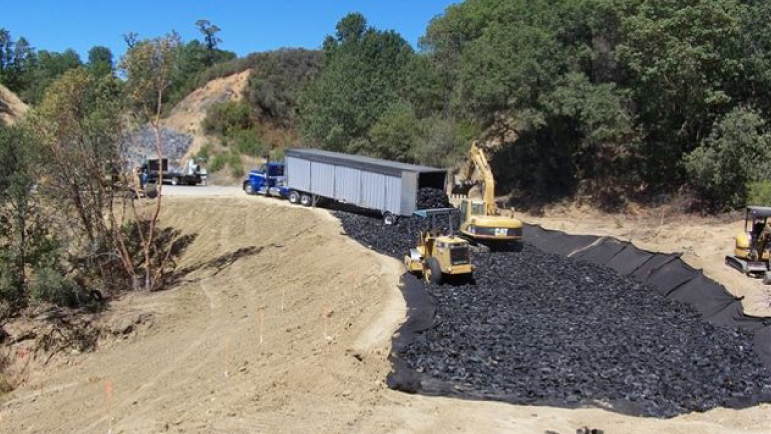
TDA is the perfect fill to facilitate drainage where standing water or saturated ground becomes problematic, such as a substrate for large lawns and open spaces. It provides a sturdy and permeable substrate for the construction of driveways, parking lots, pathways and trails where it prevents frost penetration that leads to thinks like rutting and heaving.
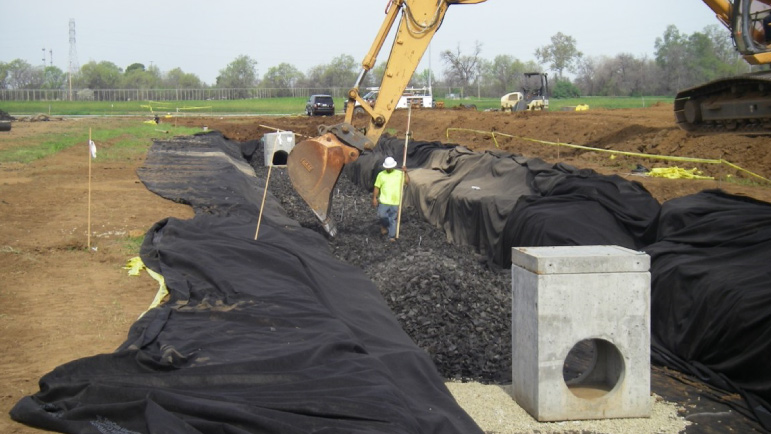
Because of how TDA is shaped, how it compacts, and what it’s made from, it provides the perfect environment for the friendly bacteria and processes needed to break down the waste in septic systems, aiding in water flow that improves system operation and lifespan.
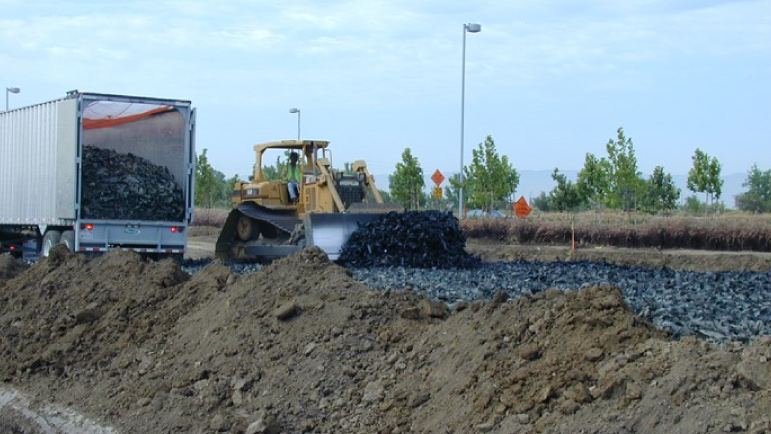
TIRE-DERIVED FUEL (TDF) is a proven fuel alternative to fossil fuels like coal, oil and natural gas. It is an excellent fuel resource, especially when blended with other solid fuels in commercial and industrial boilers. Its most commonly used as a fuel catalyst with wood in biomass power plants, or co-generation plants that produce heat and steam for industrial processes.
Environmental Rubber Recycling ships about 15,000 tons of the TDF to Michigan power plants each year on average, or about 1.33 million passenger tires. It makes for more complete combustion of other fuels, such as scrap wood, which improves efficiency, performance and reduces air emissions.
TDF is typically made up of scrap tire chips about two inches in size. It is not a solid waste and is not regulated like a solid waste by the U.S. EPA or the Michigan Department of Environment, Great Lakes and Energy (EGLE). TDF users must obtain a variety of operating, air quality and other permits from EGLE before using TDF in their commercial boiler.
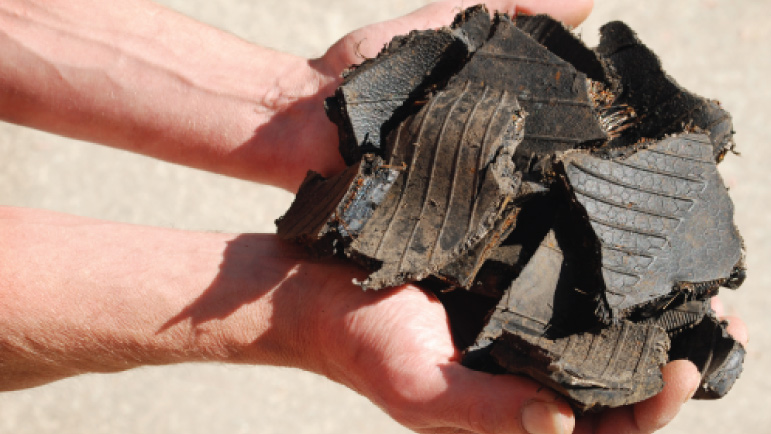
6515 Dort Hwy
Flint, Michigan 48505
Serving Greater Flint Area and Much of Southeast Michigan
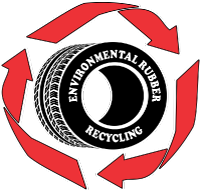
Environmental Rubber Recycling © 2020. All rights reserved.
Website by: KT Design